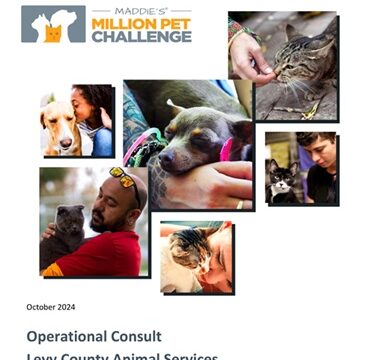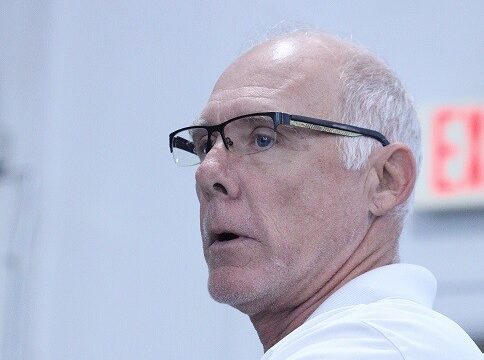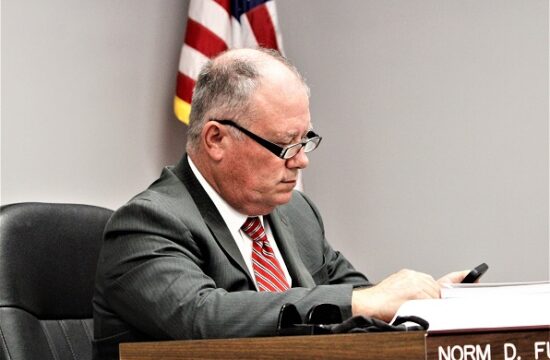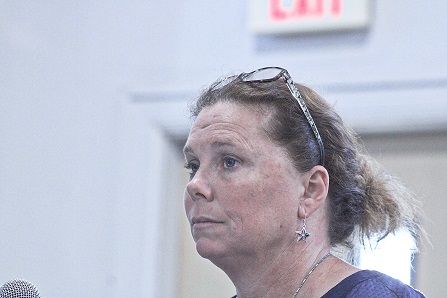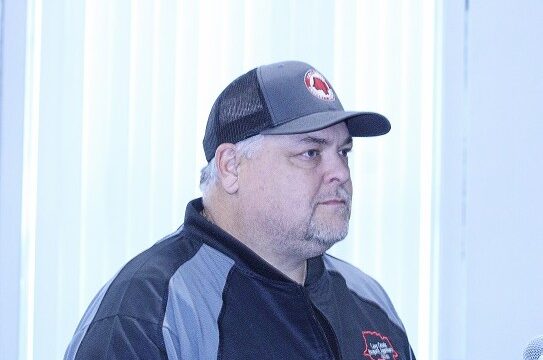By Terry Witt – Spotlight Senior Reporter
Morriston farmer Rose Fant has experienced the daily misery of walking out her front door for the past 12 years to see tons of used horse bedding stacked tall on property bordering the farm she and her husband Ben operate.
The used horse bedding, known in the horse industry as muck, a mix of horse manure, urine, and pine shavings, is cleaned from horse stalls and brought by truck to the property of Allen Fant to be dumped on an open field.
In the hot Florida sun, out of view of Allen Fant, who lives about three-quarters of a mile away from the manure dumping site, the used horse bedding slowly rots until it forms composting soil that Fant sells.
One of the great ironies of this situation in the mind of Rose Fant is that Allen Fant, her brother-in-law, has dumped hundreds of tons of horse manure bedding on his land without having to worry about county regulations.
That’s because the Levy County Commission doesn’t have any rules in its Land Development Code to control the operation and spread of manure composting sites in Levy County. County officials say there are at least three other horse manure composting sites in the county.
Fant has been in regular contact with the Florida Department of Environmental Regulation. The FDEP “regulates” horse muck as solid waste, much like a landfill, but with little concern about the environmental impacts on the aquifer or the blight that results from having a manure composting facility in one of the most beautiful rural neighborhoods in Levy County.
But FDEP has a problem of its own. Its weak regulations governing manure composting led to a lawsuit that was won by environmental groups who said FDEP’s rules weren’t just worthless, they couldn’t be enforced the way they were written.
Rose Fant approached the county commission this week at its regular meeting and chastised those on the board and staff, specifically citing County Commissioner John Meeks, who she said mistakenly portray the conflict over the horse manure composting facility as a family squabble.
When the issue of the manure composting facility was brought to the county commission on Dec. 4, 2012, Fant said she and her husband weren’t present, their children weren’t present and the mother of Allen and Ben Fant wasn’t present.
“If there had been a family squabble, those were the people you would have heard from,” she said. “We have kept publicly silent about this issue until the county found itself with this problem – I just felt it was my duty to speak out,” she said.
The county commission discovered there was a problem when it realized farmland was being purchased by billionaire Reid Nagle east of Williston for undisclosed reasons, and Nagle, as it turns out, owns a trucking company, All-In Removal, that transports used horse bedding to farm fields for deposit.
The fear among residents is that Nagle might be planning to use two pieces of property he recently purchased as locations for depositing used horse bedding The county commission responded by allowing its planning and zoning director, Stacey Hectus, to freely correspond with people employed by Nagle about how to write an amendment to the land development code that would govern composting in rural areas of Levy County.
A four-hour composting workshop on May 9, attended by a large crowd, gave county commissioners a sense of how angry people had become about how they were handling the composting issue. Commissioners apparently have decided to wait for FDEP to rewrite its rules protecting springsheds, which are the underground rivers that feed private and municipal water wells, and public water bodies like the Rainbow River and the Suwannee River.
Much of the expected horse manure that would come into Levy County would originate with the growing horse industry in Marion County. Many fear that the World Equestrian Center in Ocala would generate much of the horse manure that would be dumped on Levy County fields.
“Levy County does not need horse manure brought in from Marion County,” Rose Fant said. “Marion County does not want their own waste left in their own county, so why do they dump it in Levy County? That’s because Levy County does not have sufficient regulations for not only dumping but for many things environmental and otherwise. Levy County is wide open to an increase in unsightly, unauthorized waste facilities, water contamination, and major legal issues.”
Fant said she believes the county’s claim, made many times publicly, that if there are no land use regulations governing things like manure composting or the Chinese monkey lab company, the county can bar those businesses from locating here simply saying it has no codes to govern them.
“You are currently allowing a business to operate within the boundaries of Levy County, and I use that term loosely when I say operating, that has been present for 14 years and has served as a manure dumping ground for 12 of those years while being ignored by the county commission and FDEP. It has only come to light again because of community fear that there will be more dumps in our county if this one is not dealt with,” she said.
Fant said the county commission needs to write a rule that says anything that’s not specifically listed in its land use regulations isn’t allowed in the unincorporated areas of the county and the rule must apply across the board, or the commission can adopt all the codes in Marion County governing manure composting and use them as Levy County’s codes.
“They’re already written and easily accessible. All you have to do is read them, adopt them, and put them into force – it’s that simple,” Fant said. “If you do neither of those suggestions, you still have an obligation to this county to close unauthorized businesses based on your interpretation of the existing code – if there’s no code for it, it can’t operate. I am paraphrasing. I am inciting a call to righteous action. You must close down Fant Farm Organics.”
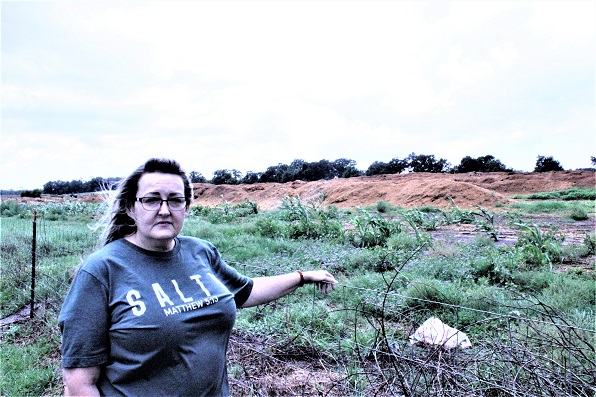
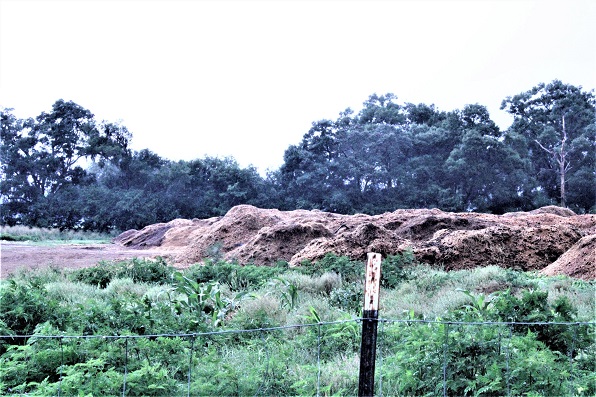
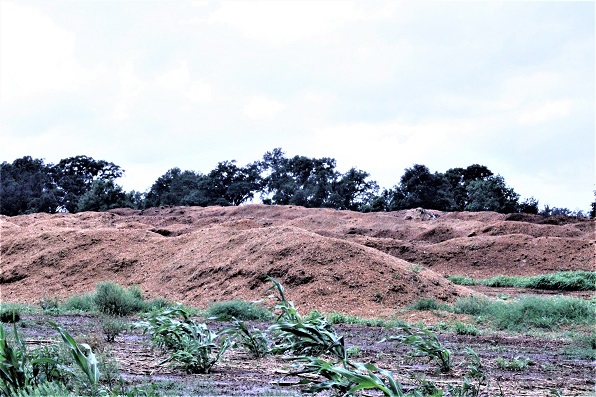
——————-
Board of County Commission Regular Meeting May 23, 2023; Posted May 24, 2023




